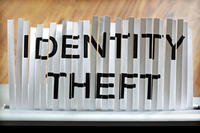It’s easy to fall into debt -- especially if you are supporting a growing family. But just because you’re in debt now doesn’t mean you have to stay in debt. You are taking the first step to dig yourself out of debt by reading this Action Plan. Whether you’re in serious trouble or just want to pay down some bills, take the steps in this Action Plan to get going.
- Complete a personal financial inventory. Knowing how you got into debt will help you find the right solutions to get out. Find out what you own, what you owe and how much you’re spending. This will help you figure out how you can trim your spending in some areas to find the money you need to repay your debts. Review the action plans on calculating your net worth, tracking your spending and building a spending plan to get your financial inventory started.
- Put away the plastic. If you find yourself over your head in debt, stop using your credit cards immediately. See the Control Your Credit Action Plan for tips that can help you live without using credit cards all the time.
- Call your creditors before skipping payments. If you think you can’t make a payment, call the business you owe money to and ask for more time. If you make the call before you miss a payment, the business often will be more willing to work with you.
- Talk with the financial counseling personnel on your installation. They can assess your situation and offer advice to help you get out of debt. They will also be able to refer you to local programs designed to help military personnel and their families.
- Consider working with a nonprofit debt counseling service. Your Family Services or Support Center can help you locate one in your area. You can also contact the National Foundation for Credit Counseling to find a credit counselor in your area. Visit NFCC.org or call (800) 388-2227.
- Pay your high interest rate debt first. Work on paying down the credit card or loan that charges the highest interest rate first. Set a goal to pay a specific amount toward that debt each month, while putting minimum payments toward your other credit cards or loans. When that high interest debt is paid off, apply the extra money to the debt with the next highest rate. In time, you’ll pay off your debts and save big bucks in interest.
- Mail your payments early. When paying your credit card bill by mail, send your payment several days before the due date (at least a week). This is very important. Credit card companies typically require that payments be posted to your account by a certain time of day on your due date or they will charge you a late fee. Take extra care to mail your credit card payments early, so they can be posted to your account on time. When making the payment over the Internet or by phone, find out when the payment will post to your account. Some companies wait a day or two before posting your payment, so you need to make the payment a day or two before the due date. Late payments are expensive (often $30 or more) and hurt your credit history.
- Avoid settlement or credit repair scams. There is no such thing as an easy fix to getting out of debt or repairing a bad credit record. Stay away from services that require up-front fees or “voluntary contributions,” guarantee they can make your debts go away or promise you will pay only pennies on the dollar. Be careful if they tell you to stop communicating with creditors, require personal information and credit card information before sending you information on what they do or want to put you into a debt management plan before analyzing your situation.
- Consider bankruptcy a last resort. Some people think bankruptcy is the only option when their debts become too much to manage. Servicemembers, however, may have several other options. If you are considering bankruptcy, talk with a financial counselor at your Family Services or Support Centers first. Bankruptcy is a last resort -- it has long term consequences and may not provide the debt relief you seek.
Credit and debt have a direct relationship. See our Control Your Credit Action Plan for tips on how to borrow and spend less.











